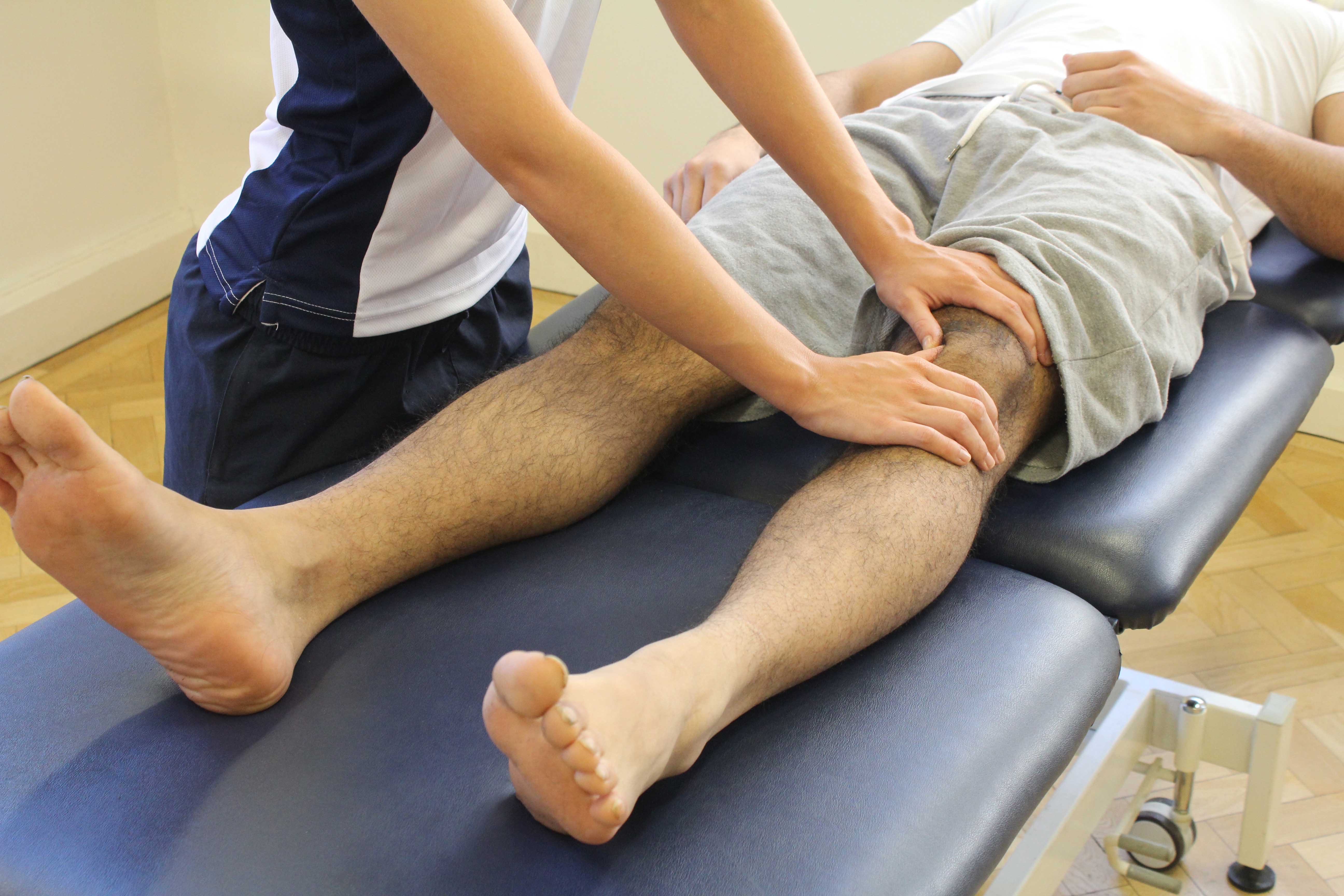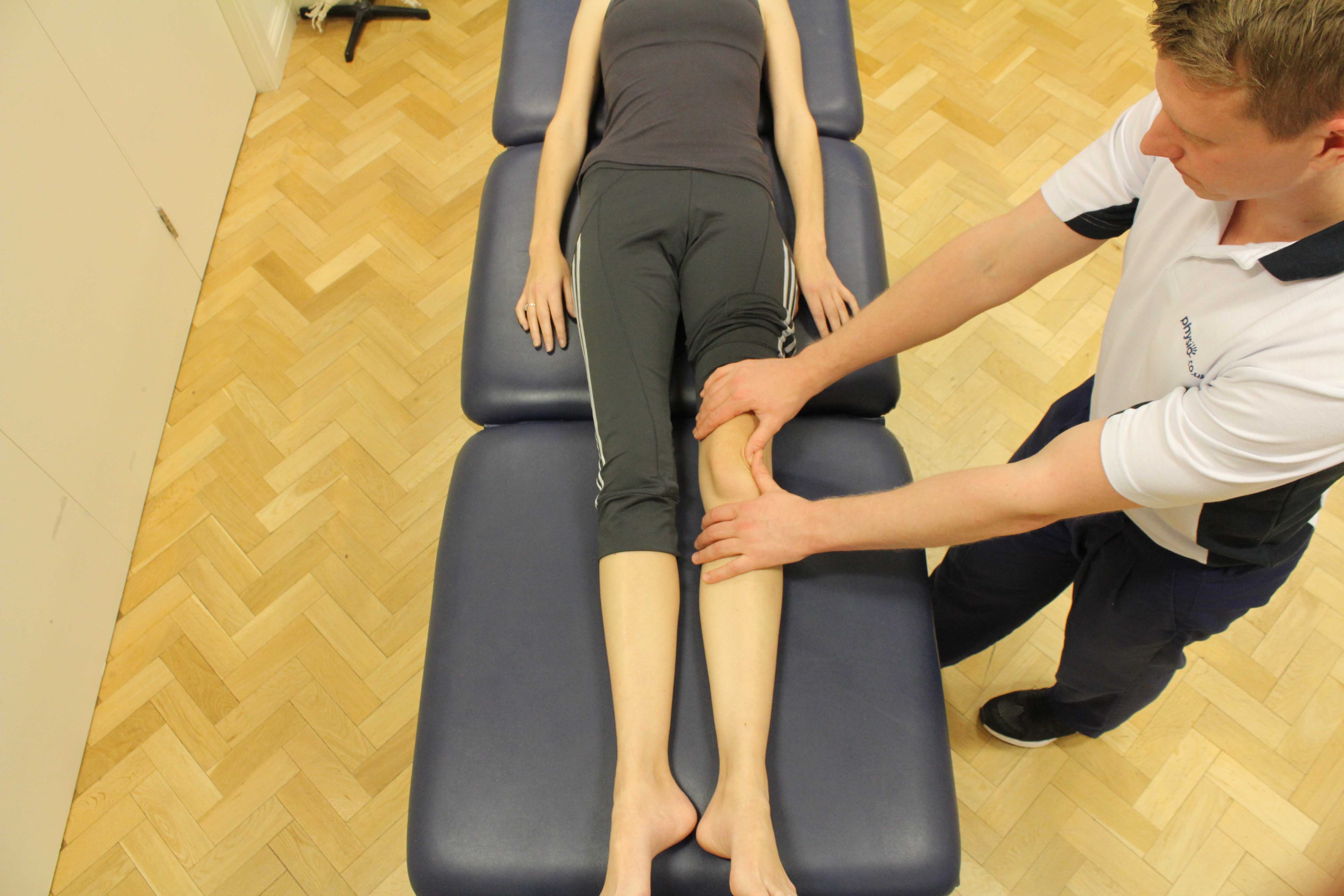What is chondromalacia patella?
Chondromalacia patella is when the cartilage on the underside of the patella (kneecap) gradually becomes softer and begins to breakdown. This can cause anterior knee pain (pain in the front of the knee).
 Above: Therapist performing soft tissue massage and mobilisations on the patella and surrounding connective tissue.
Above: Therapist performing soft tissue massage and mobilisations on the patella and surrounding connective tissue.How does chondromalacia patella happen?
Chondromalacia patella generally occurs in teenagers and young adults and is more common in females than in males. The patella is a piece of bone that is positioned over the knee joint. When the knee joint is used, the patella moves over the knee joint. Chondromalacia patella occurs when the patella does not move properly and rubs against the bottom of the thigh bone. This rubbing causes the softening and breakdown of the cartilage on the underside of the patella. There can be several reasons for his to happen including:
- Biomechanical problems such as flat feet or miss-alignment of the patella
- Leg muscle problems such as imbalance, weakness or tightness
- High levels of activity that put frequent, large forces through the kneecap such as running or jumping
What are the symptoms of chondromalacia patella?
The main symptom of chondromalacia patella is pain. It can be worsened by specific activities and there can be other symptoms as well. These can include:
- Pain in the front of the knee after bending the knee for long periods e.g. sitting
- Exacerbated pain when getting out of a chair or using stairs
- Grinding feeling in the knee
- Tenderness around the knee
What should I do if I have chondromalacia patella?
If you have or suspect you have chondromalacia patella, you should consult a physiotherapist as they will be able to help reduce your pain and work on the knee to stop symptoms occurring. Until you see a physiotherapist, it is advisable to rest the knee as much as possible to prevent pain and to stop any further damage occurring.
 Above: Therapist performing soft tissue massage and mobilisations on the patella and surrounding connective tissue.
Above: Therapist performing soft tissue massage and mobilisations on the patella and surrounding connective tissue.What shouldn’t I do if I have chondromalacia patella?
If you have or suspect you have chondromalacia patella, it is advisable not to exercise until you receive advice from a physiotherapist. Activity that puts a lot of force through the knee such as running or jumping is likely to cause pain and result in further damage to the knee.
Physiotherapy treatment for chondromalacia patella.
Physiotherapy is important in the treatment of chondromalacia patella. The physiotherapist will assess your knee to confirm a diagnosis and determine the severity. They can then commence treatment which may include:
- Muscle stretching exercises
- Muscle strengthening exercises
- Taping the knee
- Orthotics if the biomechanics of the leg are a cause
- Education on future exercise
Could there be any long-term effects from chondromalacia patella?
Chondromalacia patella can be improved and managed so that you are pain free in the future. However if treatment is not effective then there could be arthritis developing which would require long term management and possible surgery to remove damaged cartilage.
Please call Physio.co.uk on 0330 088 7800 to arrange an appointment or book online today.

 0330 088 7800
0330 088 7800

































